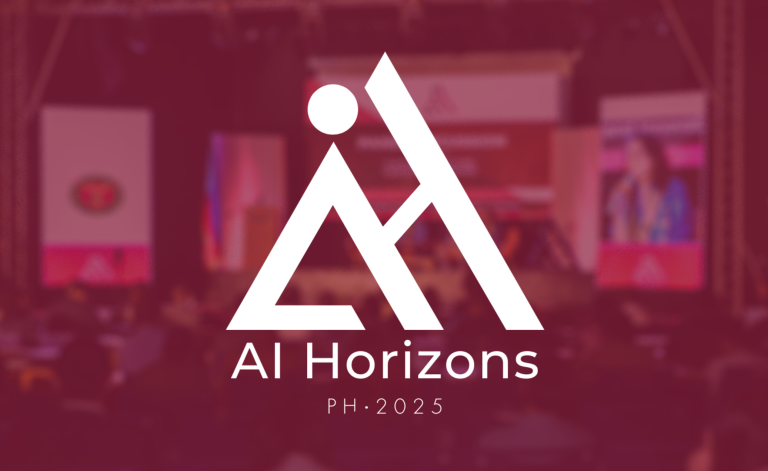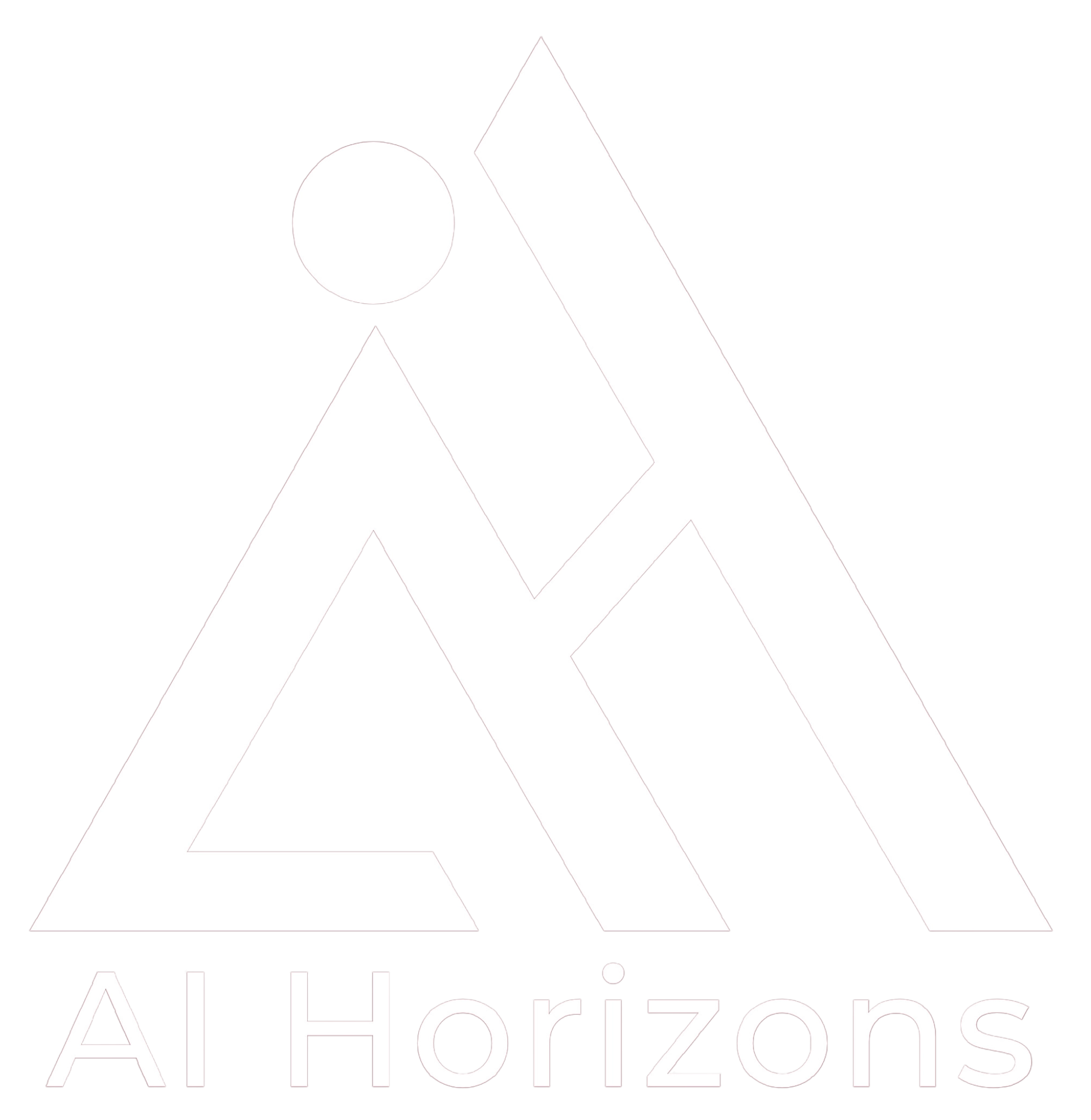PRESS RELEASE
AI Horizons PH '25 Call for Presentations, Demos, and Case Studies
August 2025 | Published by the AI Horizons PH '25 Committee

AI Horizons PH ’25: Conference on AI-Powered Innovation for National Security and Inclusive Growth
October 16-17, 2025 | University of the Philippines Cebu
The AI Horizons PH ’25 conference invites researchers, practitioners, policymakers, and industry leaders to submit original contributions addressing artificial intelligence applications in three critical domains: cybersecurity and national security, BPO industry transformation, and AI for social good. This premier gathering continues the momentum established by AI Horizons PH ’24, fostering concrete collaborations between academia, industry, government, and civil society.
Conference Themes
Session A: AI for Cyber-Physical Systems and National Security
We seek papers that advance the understanding and application of AI in protecting digital infrastructure and enhancing national security capabilities. Specific areas include:
- AI-Powered Threat Detection and Response: Automated vulnerability assessment systems, behavioral analytics for insider threat detection, and AI applications in critical infrastructure protection
- Cyber-Physical Systems and Digital Twins: Integration and Real-time interaction; Digital Twins for Smart Grids, Autonomous Vehicles, Smart Manufacturing; Trust, transparency, interoperability in CPS. Simulation, Optimization, Predictive Maintenance.
- National Security Applications: Disinformation detection and countermeasures, AI for border and maritime security, and natural language processing for intelligence analysis
- Cybersecurity Education and Research: Academic-industry collaboration models, cybersecurity workforce development, and talent identification strategies
- Governance and Policy Frameworks: Data privacy in AI systems, cross-border cybersecurity collaboration, and regulatory approaches for AI in national security
Session B: AI in BPO and Creative Industry
Papers should address the transformation of the Philippines’ cornerstone BPO and creative sectors through AI integration. Priority topics include:
- BPO Operations Enhancement: Intelligent process automation, AI-augmented customer service platforms, and workflow optimization strategies
- Workforce Transition Models: Pathways from process-based to knowledge work, upskilling frameworks, and evolving management roles in AI-enabled organizations
- Skills Development: Industry-aligned AI curricula, corporate training programs, and competency frameworks for the future BPO workforce
- Business Model Innovation: New service offerings enabled by AI, competitive positioning strategies, and technology adoption roadmaps
- Visual Arts and Graphics Design: Generative AI for image and content creation; Automation and Workflow Enhancement; Text-to-3D Generation
- Advertising, Music, and Film: Personalized Marketing, Ad Content Generation (Ad Copy, Visuals, and Personalization); AI for Audience Targeting, Visual Effects (VFX), AI for composition and post-producttion; Generative Music Production and Sound Design
Session C: AI in Governance and DRRM
Contributions will explore the critical intersection of AI technology and public sector governance, focusing on the strategic and ethical frameworks required to harness AI for national development and inclusive growth in the Philippines. Priority areas include:
- AI for Disaster Management: AI Systems for Prediction and Early Warning, Real-time Response and Situational Awareness; Optimizing Resource Allocation, Damage Assessment and Recovery; Ethical Considerations and Challenges
- Capacity Building and Public-Private Partnerships: Upskilling government workforce to understand and manage AI systems. Collaboration between government, industry, academia, and civil society in co-creating a robust and responsible AI ecosystem.
- Policy and Regulation: Legal frameworks, Global standards adaptation, National and Local Policies for AI, Balancing Innovation and Oversight.
- Ethical Frameworks and Standards: Application of ethical principles on fairness, accountability, transparency, and human oversight. Mitigation of algorithmic bias in public systems, Public trust in AI-driven government services.
- Public Sector Digital Transformation: Case studies and best practices for implementing AI in government agencies to improve efficiency, combat corruption, and enhance service delivery. AI for urban planning, e-governance, and public finance.
- Data Governance for AI: Strategies for managing government data as a national asset to fuel AI development. Open data initiatives, data sharing agreements between agencies
- Responsible AI: AI Governance, Balancing Innovation and Oversight
Session D: AI for Social Good and Inclusive Growth
Contributions should demonstrate how AI can address pressing Philippine social challenges while ensuring equitable access to technological benefits. Focus areas include:
- Digital Economy: AI for Fraud Detection, Algorithmic Trading, and Customer Service; Productivity Improvement; Local Market Transformation; Inequality
- Labor Market: Addressing AI impact on labor market; Worker displacement and automation; AI for increasing productivity and value
- Health and Public Welfare: AI for public health surveillance, disease outbreak response, and healthcare accessibility in underserved communities
- Education: AI tools for pedagogy, Personalized learning, AI and the future of teaching and learning
- Agricultural Innovation: Small farmer support systems, crop monitoring technologies, and market access platforms
- Linguistic and Cultural Preservation: Natural language processing for local languages, cultural content digitization, and indigenous knowledge systems
- Inclusive AI Development: Addressing algorithmic bias in Philippine contexts, accessibility-focused applications, and community-based solution development
Submission Categories
Presentations
Empirical research, theoretical contributions, or comprehensive literature reviews with clear implications for the Philippine context.
Case Studies
Detailed analyses of implemented AI solutions, including methodology, results, challenges encountered, and lessons learned. Particularly valuable are studies from Philippine organizations or those addressing Philippines-specific challenges.
Technical Demonstrations
Innovative AI applications ready for demonstration, accompanied by technical descriptions and implementation details.
Policy Briefs
Analysis and recommendations for AI governance, regulatory frameworks, or strategic initiatives relevant to Philippine national development.
Position Papers
Thought leadership pieces addressing emerging trends, ethical considerations, or strategic directions for AI development in the Philippines.
Submission Guidelines
Format Requirements:
- Abstract (300-500 words)
- Author biographies (150 words maximum per author)
Important Dates
- Abstract Submission Deadline: September 8, 2025 (Submission already closed!)
- Speaker Notification: September 22, 2025
- Conference Dates: October 16-17, 2025
Expected Outcomes
Outstanding contributions may be invited for expansion into policy briefs distributed to relevant government agencies and industry associations.
The conference aims to produce actionable outcomes, including:
- A “National AI Cybersecurity Strategy” policy brief
- An “AI Integration in the Philippine BPO Sector” industry roadmap
- A “Philippine Priorities for AI Social Good” multi-stakeholder framework
Submission Portal and Contact Information
Submit all materials through: https://ai-horizons.up.edu.ph/about/submission-form/
Technical Questions: ai-horizons.up.edu.ph
General Inquiries: [email protected]
AI Horizons PH ’25 is organized by the University of the Philippines System in partnership with leading government agencies, industry associations, and international development organizations committed to advancing AI innovation for national development.
Share Via
